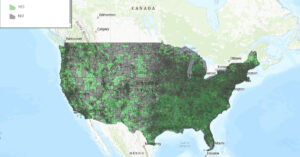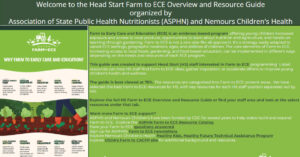Posts Tagged ‘cacfp’
Meal Pattern Minute: Cereals and Grain-Based Desserts
Can breakfast cereals ever be considered a grain-based dessert?
Read MoreFrom Storytime to Suppertime
The Central Arkansas Library System (CALS) operates CACFP ARAS and the Summer Food Service Program (SFSP) through its “Be Mighty” program. The Be Mighty program runs in 11 branches throughout the Little Rock, Arkansas area and serves over 63,000 meals and snacks each year.
Read MoreMeal Pattern Minute: Soy Yogurt
How does soy yogurt fit into the CACFP meal pattern?
Read MoreNCA FY25 Advocacy Round-Up
CACFP advocacy is central to the mission of National CACFP Association (NCA) and NCA is continuously working to support and advocate for you! This year, we’ve worked to help raise awareness, expand and improve the CACFP. Your NCA membership supports these efforts. THANK YOU!
Read MoreIntroducing Solid Foods to Infants
Infants’ nutritional needs evolve during their first year, and introducing solid foods is crucial in their development. Our partners at ICN provide information to help introduce solid foods smoothly. They cover recommendations for when and how to start, suggest suitable foods, highlight foods to avoid, and provide tips to reduce the risk of choking.
Read MoreQuarterly Policy Update: October 2025
In the last few months, there have been many actions by USDA, HHS, and Congress impacting Child Nutrition Programs. Keep reading to see what you’ve missed and stay up to date with CACFP policy!
Read MoreNational CACFP Association Welcomes Newly Elected Board Members
The National CACFP Association (NCA) is proud to announce the election of three distinguished professionals to its Board of Directors, each bringing decades of experience, dedication and leadership to the USDA Child and Adult Care Food Program (CACFP).
Read MoreFY26 Area Eligibility Map Updated
Back to Blog Back to Blog FY26 Area Eligibility Map Updated September 29, 2025 USDA announced that the CACFP and SFSP Area Eligibility Mapper has been updated for fiscal year 2026. Why It Matters Census data and school data are the two primary sources that may be used to determine whether a site is area…
Read MoreHead Start Farm to ECE Overview and Resource Guide
Our partners at the Association of State Public Health Nutritionists (ASPHN) and Nemours Children’s Health are pleased to share the Head Start Farm to ECE Overview and Resource Guide.
Read MoreSponsor Spotlight: Maria Rincon of EOAC Head Start
Maria Rincon is the Nutrition Manager for the Economic Opportunities Advancement Corporation (EOAC). Hear how she and her team ensure nutritious meals to over 500 infants and children through their Head Start centers.
Read More









